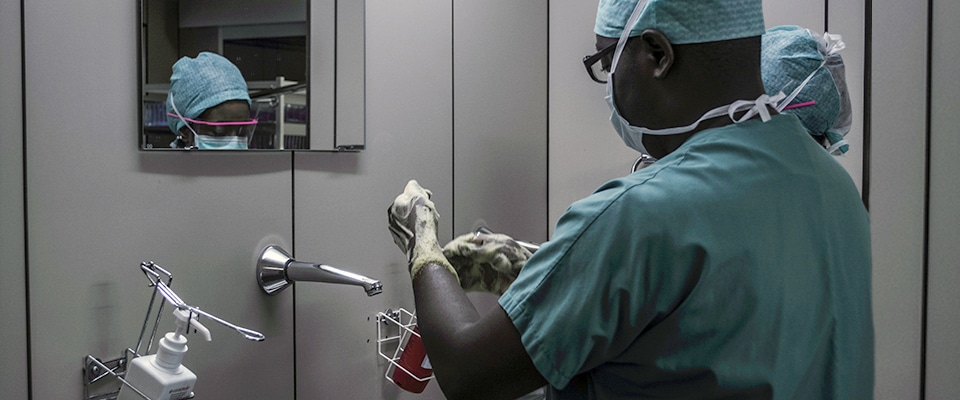January 2024 marks four years since the first positive cases of COVID-19 were identified in the UK, with over 20 million Brits having tested positive for the virus and over 200,000 deaths recorded since 2020.
But with lockdown, social distancing and restrictions a thing of the past, have attitudes towards COVID-19 and the pandemic changed? Are Brits still worried about contracting the virus? Are they more cautious in public spaces? And are they still taking measures to protect themselves and their loved ones?
We surveyed 2,000 Brits to investigate how much of an impact COVID-19 and the pandemic continue to have four years later.
Are Brits still worried about COVID-19?
Our survey found that Brits are still concerned about the potential health impacts of COVID-19:
- 46% of Brits worry that they or their loved ones could contract COVID-19
- 43% of Brits still think about COVID-19 and the pandemic regularly
- 42% of Brits worry about the possibility of a future outbreak of COVID-19
Women are more likely to be concerned about COVID-19 than men:
- 46% of female respondents said they are concerned about a future outbreak of COVID-19
- 38% of male respondents said they are concerned about a future outbreak of COVID-19
Gen-Z and millennials are less concerned about the potential of a future outbreak of COVID-19 than older generations:
- 39% of Brits aged 16-24 worry about a future outbreak of COVID-19
- 39% of Brits aged 25-34 worry about a future outbreak of COVID-19
- 43% of Brits aged 35-44 worry about a future outbreak of COVID-19
- 42% of Brits aged 45-54 worry about a future outbreak of COVID-19
- 44% of Brits aged 55+ worry about a future outbreak of COVID-19
How do Brits feel about the pandemic 4 years on?
When asked about their attitudes towards the pandemic, those surveyed responded negatively towards:
- The government: Only 27% of Brits believe that the government managed the pandemic well
- Face masks: 47% of Brits admit that they no longer wear face masks in public
This is despite studies suggesting that face masks are more effective at preventing the transmission of COVID-19 than social distancing alone.
However, Brits still consider the following measures important:
- Testing: 56% of Brits claim that they would still test for COVID-19 if they experienced symptoms
- Hygiene: 57% of Brits claim that they now wash their hands more thoroughly as a result of the pandemic.
How have work and social habits changed since the pandemic?
Social distancing and remote working have had a lasting impact on how Brits choose to work and socialise in a post-pandemic world.
A number of survey respondents admitted to lying about their COVID test results to avoid or attend work and social events:
- 13% of Brits have lied about receiving a positive COVID-19 test to enable them to avoid attending work or social events
- 12% of Brits have lied about receiving a negative COVID-19 test to enable them to attend work or social events
Many Brits have continued to stay away from the office since the pandemic, but office working has seen a resurgence since lockdown ended:
- 25% of Brits now work from home more often
- 47% of Brits now work from the office more often
Brits now find public environments and busy crowds more daunting after socially isolating during the pandemic:
- 35% of Brits feel more overwhelmed in public spaces since the pandemic
- 30% of Brits say that they now avoid busy public spaces like bars, shops and restaurants
Do Brits travel more or less since the pandemic?
Even with international borders back open and public transport back in service, COVID-19 has also impacted how and where Brits choose to travel, both at home and abroad.
Travel abroad has seen an increase since the end of the pandemic, with there being 24.9 million more visits to and from the UK in 2022 compared to 2021 by residents both in the country and overseas. However, 2022 figures were a 24% decrease on 2019 figures, suggesting that travel abroad is yet to reach pre-pandemic levels. According to our findings:
- 34% of Brits have travelled abroad less since the pandemic
Although figures have shown that bus passenger numbers in the UK have now surpassed pre-pandemic levels, the use of public transport is still an undesirable option for some:
- 26% of Brits have used public transport less since the pandemic
Contact Patient Claim Line
If you believe that you have experienced negligence during diagnosis or treatment for illnesses related to COVID-19 then you may be entitled to compensation.
Contact our team of specialist lawyers today to find out more.
Survey results based on a nationally representative survey of 2,000 UK adults, aged 16 and above, undertaken in January 2024.
Sources
https://coronavirus.data.gov.uk/
https://as.cornell.edu/news/masks-protect-better-distancing-study-finds

